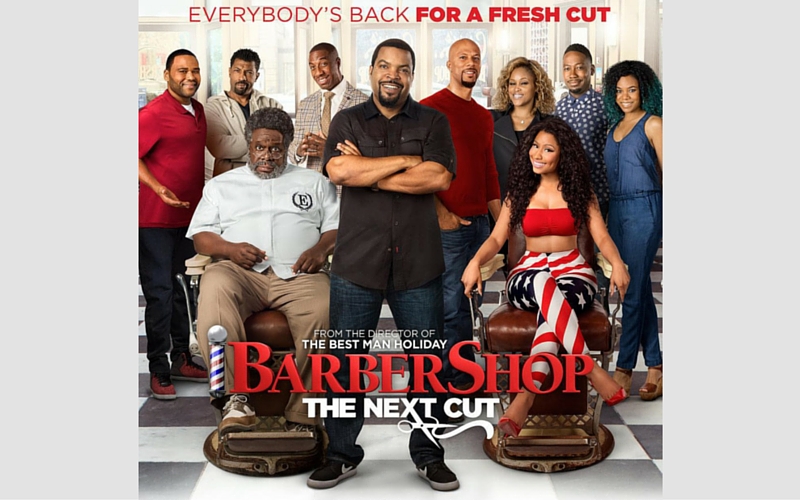- The barbershop is the economic heart of the black community, and not just a social gathering place but one of the few institutions that are still owned and controlled by black Americans. Given this dynamic, it remains an important economic oasis in the midst of other minority owned businesses in the black community which are not necessarily black. Calvin’s barbershop employed 10 families who would have otherwise been unemployed, underemployed or employed elsewhere.
- The disappearance of industry & jobs for working class families: The movie failed to discuss the reason that gangs had taken over the streets of Southside Chicago. Cedric the entertainer’s character Eddie is the link to the past generation and could have been used to juxtapose the present and to give context to how and why times had changed. It is no secret that areas that once had steel manufacturing were devastated when it moved overseas and thousands of communities were decimated by this. Old steel cities such as Chicago, Pittsburgh, and Buffalo, NY are today shadows of their glorious past and where there are no jobs crime and drugs become rampant.
- Conflict of father vs community. Every father wants the best for his son and this is demonstrated in the character played by rapper Common who takes his son and raises him after he gets into some trouble living with his mother. Calvin wants to move the barbershop to the north side to get away from gangs and give his son access to better schools. It is only natural for a father to prioritize the welfare of his son over the community.
- The Southside community taking responsibility for its own destiny, participating in solving its own problems with the 48 hour ceasefire was a powerful demonstration of the power of our community in solving our own problems.
- One of the proudest moments of the movie was when Jaylen rejects gang initiation and cuts his hair to look like a real masculine young man with a purpose and begins to learn the family business. This transformation is so powerful because we see the transference of knowledge and ultimately wealth from one generation to another.
- The effeminate men were prevalent in the movie. The so-called gangster played by Tyga getting his hair braided. Hair braiding is a female behavior and reminiscent of a jail-bird who has been turned out in prison. All the young boys in the gang were very feminine with pony tails in their hair and long hair something that had not seen until the 1980s when prison populations grew astronomically. Mass incarceration led to the proliferation of prison culture and has become part of the mainstream in black America. The Jerod character who was described as a warrior for women’s rights was a very effeminate character too and yet was being heralded as the non-gangster alternative. This was troubling because a better alternative that should have been esteemed was the Jimmy character played by Sean Patrick Thomas who had graduated and now worked for the Mayor’s office. He was a former barber in Calvin’s store who worked his way through college and was the epitome of the strong and successful black man. The problem with men like Jerod is that they are not really fighting for women’s rights that matter such as equal work for equal pay. In the United States black women make 77 cents for every $1 a white male makes doing the same job. This disparity leads to a difference in wealth and is a huge problem. This is not the fight Jerod and men like him are fighting for but their fight is for women’s social issues such as the right to act like a slut, dress like a slut and not be labelled a slut.
- The purpose of African storytelling is to moralize. The purpose of western storytelling is to sell ideas and propaganda. While the people were quick to point out that the character played by Common had made the vows to his wife and therefore knew better. There was no responsibility laid on Draya with her provocative attire and seductive behavior in trying to break up a black family, instead it was the usual blame the black man for everything and make excuses for the bimbo.
- The Father-Son dynamic was very powerful because we saw two fathers standing up for their sons and instilling values in their sons that ultimately led them to make the best decisions for their lives and reject gang life and warfare.
- Anthony Anderson’s character J.D. employing ex-cons and giving them a second chance is important that they are able to assimilate back into society and make an honest living so as not to be enticed by the streets or fast money again.
- Strong Sexual language and graphic images not suitable for teens. Promotion of sexual deviancy and twerking of Draya character was unnecessary. The innuendo about introducing a third person in the sex life of the married couple was unnecessary and undercuts the message of strong families. The black family has been decimated and there is no room for the introduction or inference of dysfunctional sexual behavior which only leads to more divorce increase in single parent households in our community.
Overall, its worth watching and we hope for more movies that promote the black family. Let us know what you think about the movie too. Comment below.




